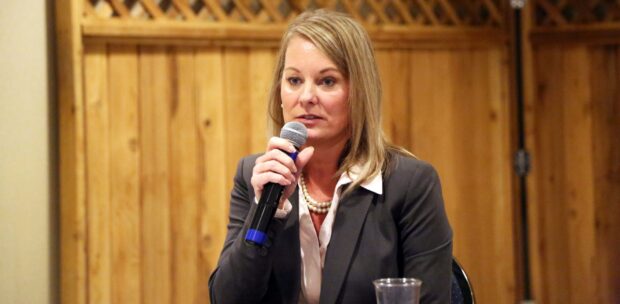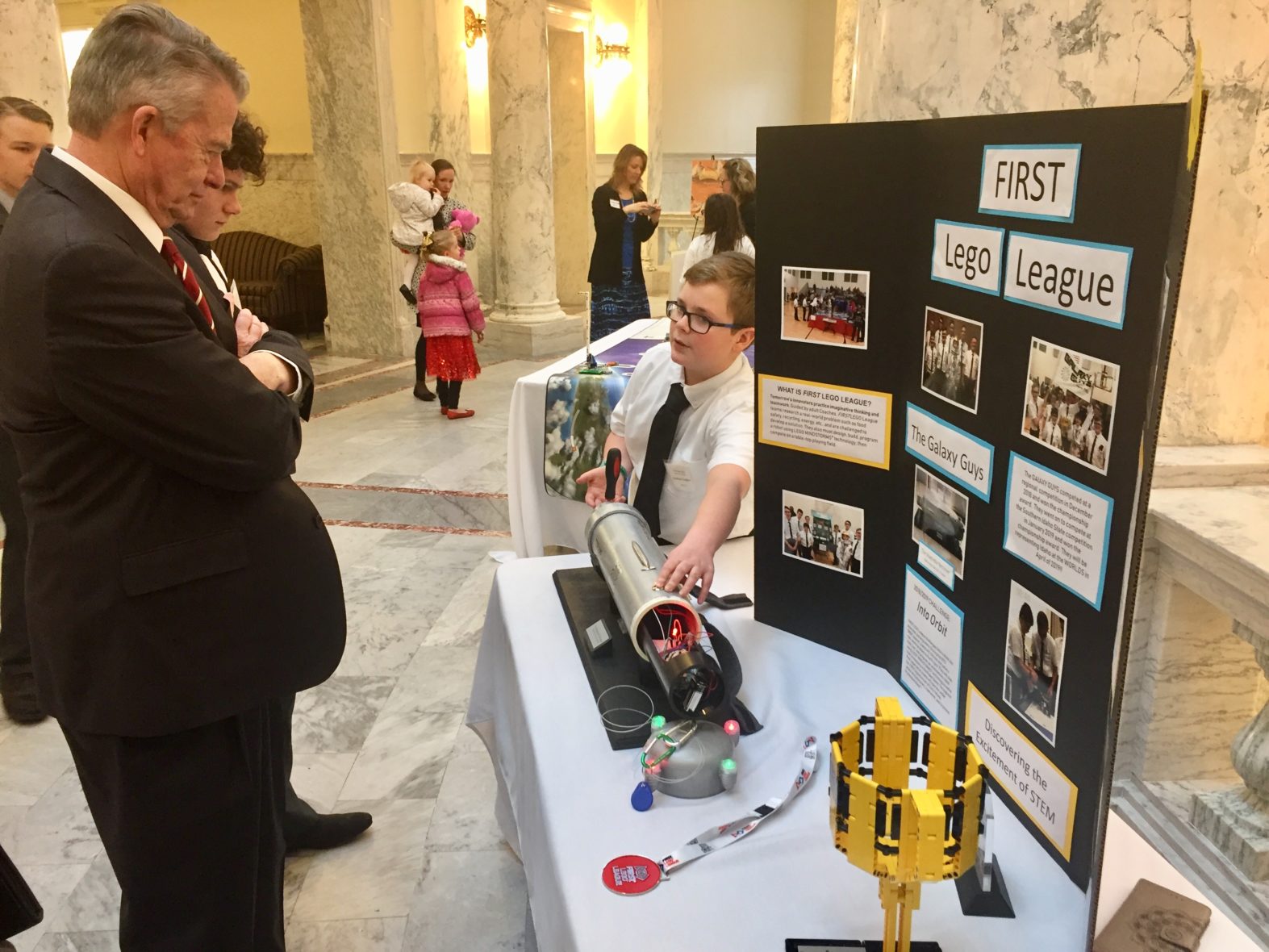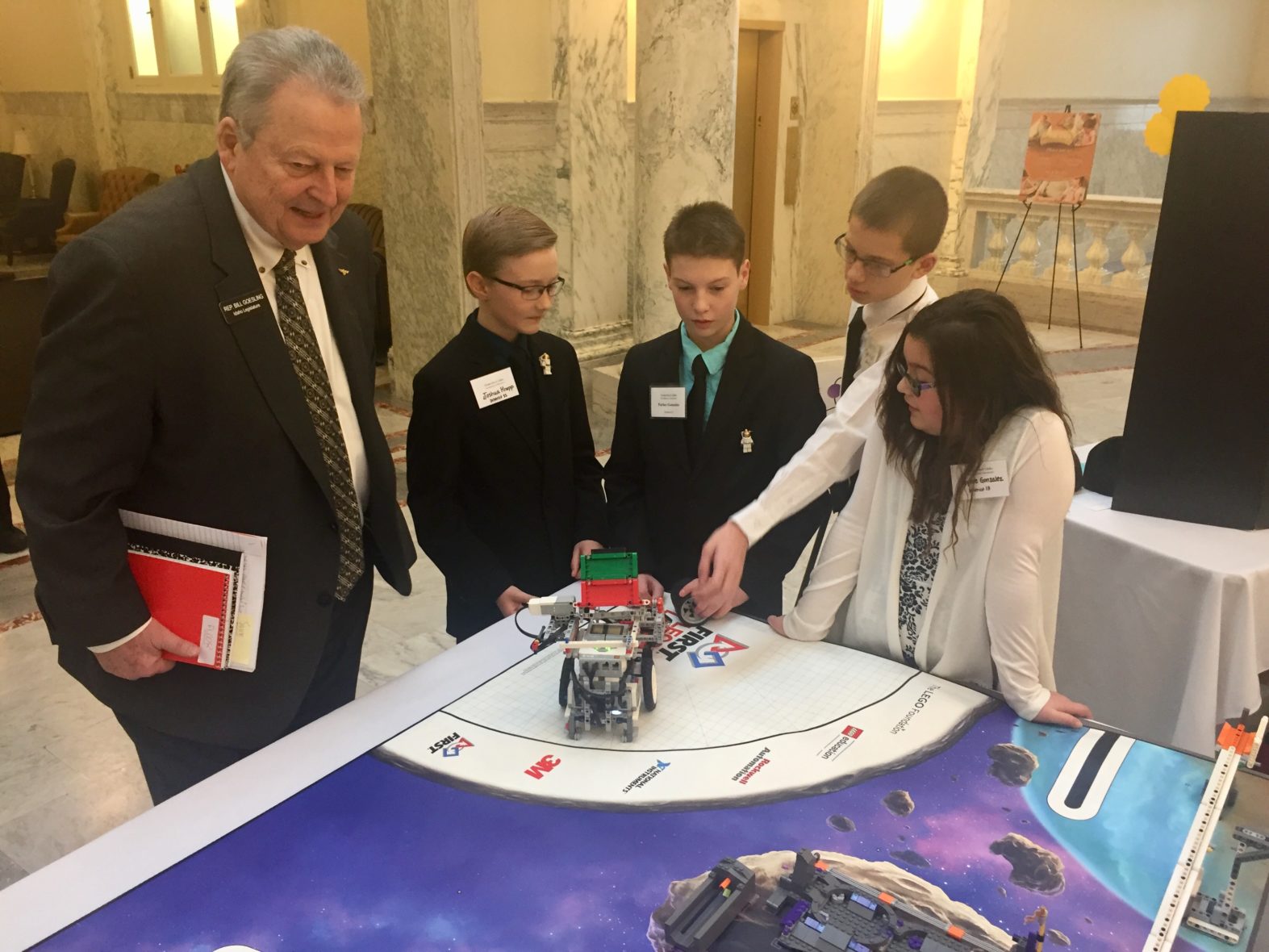The House Education Committee voted Wednesday to introduce Gov. Brad Little’s bill to raise the minimum teacher salary in Idaho to $40,000.
The proposal is one of the cornerstones of Little’s education agenda. Little kicked off his first term in office by highlighting his proposal to raise teacher pay above and beyond the career ladder salary law during last month’s State of the State address.
But Little’s plan has changed over the past five weeks. The bill introduced Wednesday would raise starting teacher pay to $40,000 over the next two years. Originally, Little called for raising salaries to that point next year. By spreading the raises out over two years, Little will reduce the impact to the state budget as legislators continue to worry about cash flow issues and lower-than expected state revenues.
Greg Wilson, Little’s senior adviser focusing on education, said the pay raises are designed to attract young teachers to Idaho.
“Idaho has a challenge when it comes to attracting, recruiting and retaining our young teachers, particularly in rural areas,” Wilson said.
In supporting the bill, Rep. Bill Goesling, R-Moscow, said he appreciated Little’s effort to bring minimum salaries up to compete with neighboring states, such as Washington.
“It’s a nightmare,” Goesling said, referencing the competition with other states.
Little’s bill would specifically raise the starting pay, as well as pay levels for teachers in the first three cells of the career ladder’s “residency rung.”
Here’s a look at what salaries would like under the first three cells of the residency rung if Little’s bill is signed into law and fully funded.
- 2019-2020: $38,500, $39,000 and $39,500
- 2020-2021: $40,000, $40,500 and $41,000
Originally, Little requested $11.4 million for the 2020 budget year to handle the raises in one swoop. But he revised that proposal to spread it over two years. Under the bill, it would cost the state general fund $3.8 million in 2020 and $7.6 million in 2021 to cover the raises.
“We believe this approach over two years is fiscally responsible,” Wilson told legislators Wednesday.
Rep. John McCrostie, D-Garden City and a music teacher by profession, backed Little’s plan to raise salaries. He said he would like to eventually do more to raise veteran teacher salaries and address the retention side of the equation. But he called Little’s bill a good first start.
“We definitely need to do more to help our teachers, to attract them into the profession,” McCrostie said.

In addition to Little’s salary bill, lawmakers are also considering a plan to spend $48 million to implement the final year of educator raises under the 2015 career ladder salary law.
In her budget request, Superintendent of Public Instruction Sherri Ybarra carved out a different salary proposal. Like Little, she supports full funding of the career ladder. She also asked budget writers for an additional $28 million to raise salaries for veteran teachers.
Like Little’s salary proposal, Ybarra’s would also need to be implemented via a bill to change state salary laws. Thus far, Ybarra has yet to introduce such a bill.
House Education’s vote to introduce Little’s salary bill clears the way for it to return for a full hearing.
A guns-in-schools bill hearing that wasn’t
A capacity crowd gathered for Wednesday’s House State Affairs Committee — but dispersed quickly.
The committee was scheduled to get its first look at a bill to allow anyone with an enhanced concealed carry permit to bring a gun onto school grounds. But the hearing was abruptly postponed.
And it’s unclear when the hearing will surface.
About 30 people crowded into the committee room. Many were members of Everytown for Gun Safety, a national organization that supports gun control — and some members wore red t-shirts bearing a group slogans: “Moms demand action for gun sense in America.”
After committee Chairman Steven Harris announced the postponement, one Everytown for Gun Safety member stood up and pressed for details. Harris, R-Meridian, provided few answers. He said the bill would come back at some later date, and said he would try to provide as much notice as possible beforehand.
An introductory hearing — such as Wednesday’s postponed hearing — tends to be informal and brief. In many cases, the committee decides whether to introduce or “print” a bill without taking public comments. Committees usually take public comments at a later date, when the printed bill comes back for a full hearing.
Rep. Chad Christensen, R-Ammon, is pushing the guns-in-schools bill. (For more details on the proposal, click here.)
Scenes from Pie Day
Dozens of home school students and families from the Idaho Coalition of Home Educators baked pies and showed off student projects during the annual Pie Day celebration Wednesday at the Statehouse. Pie Day has become an annual Statehouse tradition that many legislators look forward to.





Idaho Education News reporter Kevin Richert contributed to this report.
